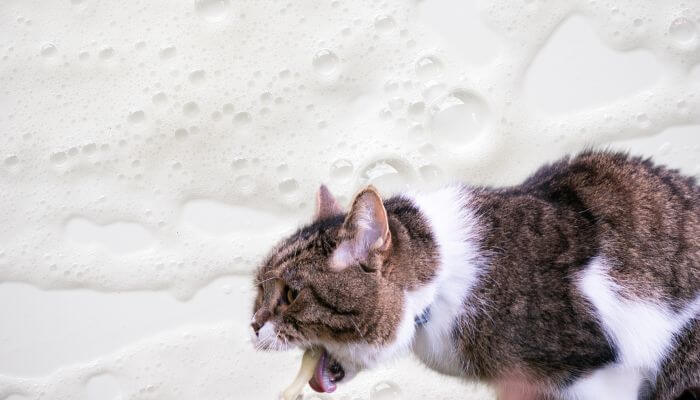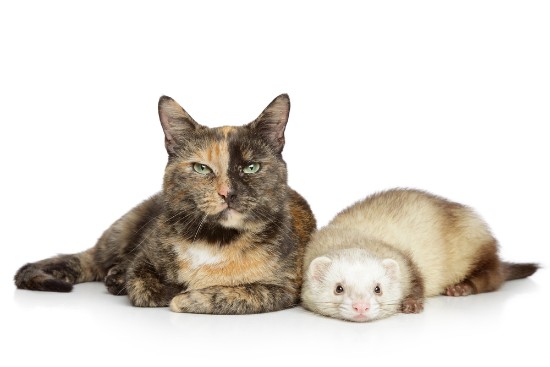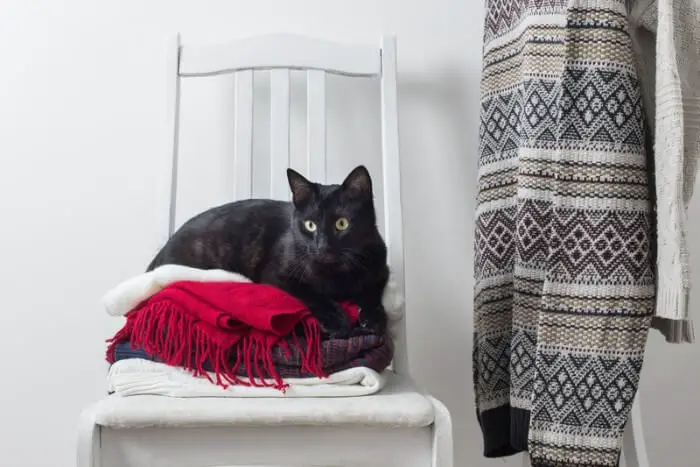No, ginger cats are not hypoallergenic. It has been found that a cat’s coat colour does not effect how much fel d1 (allergen) is produced so ginger cats are not going to be less allergenic than other cats.

In fact, male cats have been found to produce more Fel d1 allergens than female cats and most ginger cats are male so they are likely to produce slightly more allergens.
Although no cats are truly hypoallergenic there are some cat breeds, such as the Cornish Rex, that are known to produce fewer allergens. Although these cats are considered to be a better choice for people with allergies, they can still cause allergic reactions.
Is It Possible To Be Allergic To Just Ginger Cats?
You can experience allergic reactions to some cats and not others. This is simply caused by the amount of allergens produced by the individual cats.
As the amount of dander and Fel d1 produced can differ between individual cats even cats of the same breed can result in different allergy symptoms.

Most pet allergies are caused by dander and the Fel d1 molecules found in a cat’s saliva. The levels of these allergens can vary between cats so those that produce more dander and Fel d1 are more likely to trigger reactions.
If you experience allergic reactions to ginger cats there is a risk of experiencing reactions to other cats too.
Cat Breeds That Are Hypoallergenic
There are no truly hypoallergenic cat breeds but some cats are known to have lower Fel d1 levels in their saliva and also produce less dander than others.
These more allergy-friendly cat breeds include:
- Balinese
- Siberian
- Cornish Rex
- Devon Rex
- Sphynx
- Oriental Shorthair
- Russian Blue
- Bengal
- Burmese
- Javanese
- Ocicat
Although considered to be better for people with allergies, these cat breeds do produce dander so they can still trigger reactions.
It’s worth spending time around the breed you are considering before buying/ adopting.
What To Do if You Have A Ginger Cat That You Are Allergic To
If you have a ginger cat and you’re experiencing allergic reactions it is worth discussing this with your doctor.
Allergy testing is a good idea as this will confirm if you are allergic to your cat or if there is something else, such as dust mites, triggering your reactions.
If you are experiencing cat-allergies, there are ways you can minimise reactions at home including:
- Using antihistamines to relieve allergy symptoms
- Not letting your cat lick you
- Using a HEPA air filter
- Grooming your cat regularly (preferably outside)
- Cleaning your cat with a damp cloth
- Washing your hands after stroking your cat
- Keeping the litter box clean
- Vacuuming regularly
- Consider having pet-free rooms (such as the bedroom)
- Switching to hard floors instead of carpets
The Fel d1 cat allergen is produced in cat saliva and is spread onto their skin/ fur during grooming.
This is why even hairless cat breeds can cause allergic reactions. Following the tips above can help reduce your exposure to allergens and make your home comfortable for you and your cat.
Sources:






Leave a Comment